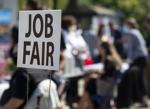Citing the state’s labor shortage, Governor Henry McMaster has asked South Carolina to stop participating in all federal government-related pandemic-related unemployment programs, including $ 300 weekly payments that do not expire for multiple months.
The additional payments, new unemployment benefits programs, and the extended deadlines for receiving aid were introduced as the lifelines for the millions of Americans who became unemployed as a result of COVID-19.
Now McMaster argues that the improved perks are helping to alleviate the shortage of applicants for job vacancies, especially in the hospitality industry.
“What was meant to be short-term financial assistance to vulnerable and displaced people during the height of the pandemic has become a dangerous federal claim that encourages and pays workers to stay at home rather than encourage them to return to work. ” McMaster said in a statement May 6.
More than 100,000 South Carolinians received some kind of unemployment benefit at the beginning of the month.
The governor’s policy comes into effect on June 30th.
South Carolina is the second state this week to announce that it will be opting out of the programs.
Montana Republican Governor Greg Gianforte made a similar announcement Tuesday when he said the state would end extended unemployment benefits by June 27.
This change in South Carolina will affect six different programs that are currently in place. This emerges from a May 6 memo from Dan Ellzey, Executive Director of the SC Department of Employment and Workforce, to McMaster. This includes the additional $ 300 paid weekly to applicants from federal funds. The American rescue plan had extended these benefits until September 6th.
But at McMaster’s request, South Carolina will end this aid more than two months early.
Another program that provides unemployment benefits to self-employed workers or independent contractors – classifications that normally do not qualify for state unemployment control – would also end in South Carolina. The state would stop paying out these benefits and not process new claims of this kind, Ellzey said in his letter.
In the week ending May 1, more than 37,000 applicants received benefits through this program, according to DEW.
According to the memo, people who have exhausted their regular 20 weeks of unemployment benefit are no longer entitled to payments. One of the federal programs provided for a further 51 weeks during which applicants could continue to be eligible after the usual deadline.
South Carolina’s normal 20-week allowance limit is on the low end compared to other states. Most offer 26 weeks.
In a statement, Ellzey said he agreed with the governor’s move to end the programs and also noted that there is a need for workers in the service sector.
“While federal funding supported our unemployed workers during the height of COVID-19, we fully agree that re-employment is the best recovery plan for South Carolinians and the state’s economic health,” Ellzey said. “The first loss numbers last week were the lowest since the pandemic began, and employers across the state are eager to hire new employees and get South Carolina back up and running.”
For the week ending May 1, DEW reported 2,856 new claims.
Weekly claims in the state peaked last April at more than 87,600.
We’re launching a weekly newsletter on the business stories that shape Charleston and South Carolina. Get involved – it’s free.

According to DEW data, which is updated weekly, about $ 5.2 million of the total of $ 63 million in the week ended May 1 came from regular unemployment. More than half, about $ 37 million, was attributed to Federal Pandemic Unemployment Compensation, which offers the added $ 300 benefit and would end next month at McMaster’s request.
These increased unemployment benefits were mentioned in the legislature on May 6 when the Senators debated a bill that would allow South Carolina taxpayers to withdraw from theirs up to $ 10,200 in 2020 unemployment benefits Exempt income tax returns due on May 15th Those who received the benefits will not have to pay tax on those $ 10,200.
The law would bind state tax law to federal government changes that lawmakers regularly make to make it easier for taxpayers and the accountants who prepare their tax returns.
Senate Majority Leader Shane Massey, R-Edgefield, said that while supporting compliance with federal tax law and speeding up the issue for tax advisors, he had “a little heartburn” because of the bill being exempt.
“We paid people more not to work, then we suspended the requirement for them to look for work, and now we’re all going to give out income tax payments?” Asked Massey.
The Senate eventually postponed a vote on the bill. The House unanimously approved the measure a month ago.
While job search requirements for the unemployed in South Carolina were temporarily on hold, they went back into effect on April 18, meaning anyone currently on unemployment benefits had to look for jobs in order to remain eligible for payments.
This is a standard rule in South Carolina, but it hasn’t been mandatory for about a year due to COVID-19 and the lack of available jobs at the start of the pandemic.
The department knows of 81,684 active job openings in the state, Ellzey said in his statement.
The leisure and hospitality sectors in particular saw the workforce down dramatically last spring, but now, more than a year later, they are struggling to recruit after the tourists have returned.

While taking away these federal unemployment benefits will likely “move the needle” for some applicants and get them to apply for work, it is “not a panacea,” said Laura Ullrich, regional economist at the Federal Reserve Bank of Richmond.
These additional payments are “part of the calculation” for people considering returning to work, Ullrich said, but it doesn’t stop there.
Childcare issues, fears of graduating from COVID-19, and other factors also play a role in these decisions, she said.
Ullrich also noted that additional federal unemployment funds are likely just a deterrent to returning to work if a person’s work is not well paid. Many workers cannot replace their wages with unemployment benefits.
This is more likely to be the case in a sector that tends to pay less, such as leisure and hospitality.
While South Carolina and Montana are the only states so far to announce an early end to the federal COVID unemployment programs, Ullrich said she “wouldn’t be surprised now” if some other states followed suit.
Seanna Adcox contributed to the coverage.